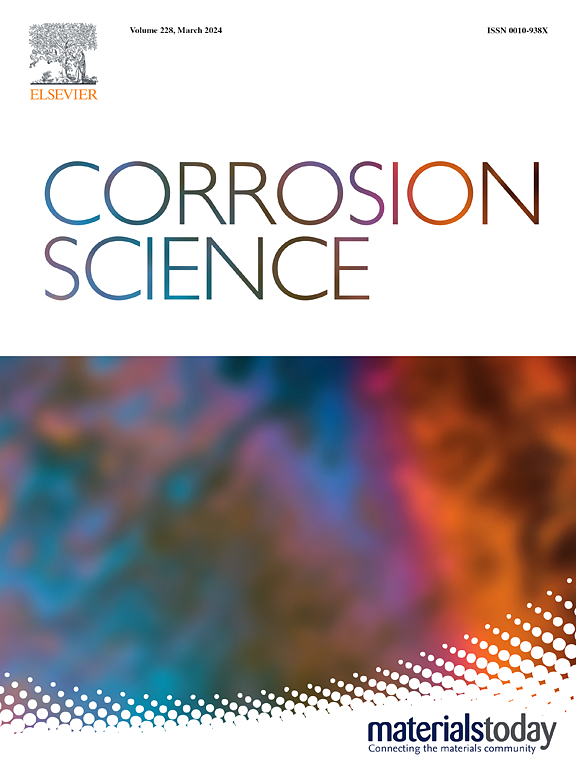Intestinal bacteria-accelerated corrosion of biodegradable Zn–Mg alloys: Composition-dependent degradation behavior
IF 7.4
1区 材料科学
Q1 MATERIALS SCIENCE, MULTIDISCIPLINARY
引用次数: 0
Abstract
Zinc-based alloys are promising biodegradable materials for gastrointestinal devices, yet their degradation behavior in the complex, microbe-rich intestinal environment remains poorly understood. In this study, the corrosion behavior and underlying mechanisms of pure extruded Zn, Zn–0.03Mg, and Zn–0.05Mg alloys were systematically investigated in the presence of two representative intestinal bacteria, Lactobacillus acidophilus and Lactobacillus plantarum. Microstructural analysis revealed that trace Mg addition significantly refined the grain size of Zn alloys. Mechanical testing demonstrated that the yield strength of Zn–Mg alloys increased by approximately 3-fold compared to pure Zn, with nearly double the elongation after fracture. Electrochemical measurements, hydrogen release tests, weight loss analysis, and surface characterization showed that microbial activity accelerated the corrosion rate by 3–5 times. Notably, Mg incorporation effectively suppressed corrosion under both sterile and microbial conditions. Mechanistic analysis revealed that the acidic environment generated by bacterial metabolism was the primary driver of enhanced degradation. This work establishes a “structure–property–corrosion” relationship, offering a theoretical foundation for the mechanical optimization and degradation control of zinc-based biodegradable implants for gastrointestinal applications.
可生物降解锌镁合金的肠道细菌加速腐蚀:成分依赖性降解行为
锌基合金是一种很有前途的用于胃肠道设备的可生物降解材料,但其在复杂的、富含微生物的肠道环境中的降解行为仍然知之甚少。在本研究中,系统研究了纯挤压Zn、Zn - 0.03 mg和Zn - 0.05 mg合金在两种具有代表性的肠道细菌嗜酸乳杆菌和植物乳杆菌存在下的腐蚀行为及其机制。显微组织分析表明,微量Mg的加入显著细化了Zn合金的晶粒尺寸。力学试验表明,与纯Zn相比,Zn - mg合金的屈服强度提高了约3倍,断裂伸长率提高了近一倍。电化学测量、氢释放测试、失重分析和表面表征表明,微生物活动使腐蚀速度加快了3-5倍。值得注意的是,Mg的掺入在无菌和微生物条件下都有效地抑制了腐蚀。机制分析表明,细菌代谢产生的酸性环境是增强降解的主要驱动因素。本研究建立了“结构-性能-腐蚀”关系,为胃肠道用锌基生物可降解植入物的力学优化和降解控制提供了理论基础。
本文章由计算机程序翻译,如有差异,请以英文原文为准。
求助全文
约1分钟内获得全文
求助全文
来源期刊

Corrosion Science
工程技术-材料科学:综合
CiteScore
13.60
自引率
18.10%
发文量
763
审稿时长
46 days
期刊介绍:
Corrosion occurrence and its practical control encompass a vast array of scientific knowledge. Corrosion Science endeavors to serve as the conduit for the exchange of ideas, developments, and research across all facets of this field, encompassing both metallic and non-metallic corrosion. The scope of this international journal is broad and inclusive. Published papers span from highly theoretical inquiries to essentially practical applications, covering diverse areas such as high-temperature oxidation, passivity, anodic oxidation, biochemical corrosion, stress corrosion cracking, and corrosion control mechanisms and methodologies.
This journal publishes original papers and critical reviews across the spectrum of pure and applied corrosion, material degradation, and surface science and engineering. It serves as a crucial link connecting metallurgists, materials scientists, and researchers investigating corrosion and degradation phenomena. Join us in advancing knowledge and understanding in the vital field of corrosion science.
 求助内容:
求助内容: 应助结果提醒方式:
应助结果提醒方式:


